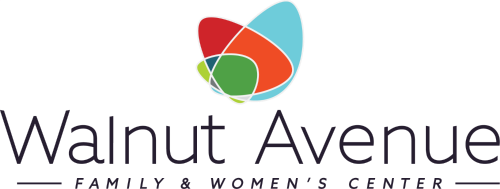
The Domestic Violence Advocacy Certification Training
Domestic Violence State Certification Training
Walnut Avenue offers the California state domestic violence certification training three times a year. The Spring and Fall trainings are for our volunteers while the Summer training is for professionals and community members who are not planning to volunteer with Walnut Avenue.
-
The training addresses subjects such as:
The definition, manifestations, and dynamics of domestic violence (DV)
The personal, interpersonal, social, cultural, and political barriers facing survivors of domestic violence from an intersectional perspective
How and why people choose to cause harm
The impact of domestic violence on children and youth
How culture, society, and communities shape gender-based violence
Crisis intervention and peer support skills
Family law restraining orders and alternative forms of justice
Successful completion of the DV training results in certification under California state law as a “domestic violence peer counselor.” The grounds for certification are laid out under California Evidence Code 1037.
-
The DV training totals 40+ hours and is split between recorded lectures and live sessions.
The recorded content is available in both video and audio form, along with transcripts, through the link at the bottom of this page. You have one week to listen and respond to that week’s content at your own pace.
Live sessions are hosted on four separate Fridays, each from 10am-5pm. In Summer, these live sessions are virtual via Zoom. In Spring and Fall, the live sessions are in person at our main office on 303 Walnut Avenue, Santa Cruz, California.
-
For all the seasonal trainings, you should expect to spend at least 10 hours each week for 4 weeks on the DV training.
There are five live sessions: one 2-hour session from 10am-12pm, then four 6-hour live sessions from 10am-5pm. All the live sessions are on Fridays and are mandatory.
The rest of the hours are online and self-paced. You have a full week to complete the weekly modules.
-
All potential students for our training must meet the following four criteria:
Be aged 18 or older
At least 3 years have passed between a personal experience of DV and/or the last date of receiving any services from Walnut Avenue and the start of training
Have some prior experience in navigating online learning content
Have access to a device that enables online browsing, utilizing video/audio content, and participating on Zoom
Anyone intending to volunteer with us upon completing the training must also:
Be willing to undergo a criminal background check
Be a resident of California for at least 50% of the year (citizenship status is irrelevant)
Additional information about the general volunteer process is available here.
-
This training addresses different types of abuse and how they intersect with racism, transphobia, ableism, police and state violence, and other aspects of kyriarchy. Mental illness, substance misuse, and the impact of trauma, including its impact on children, are also addressed.
Please note that a person who begins the training is not obligated to complete it.
If this certification training doesn’t fit what you’re looking for, check out our education page for info on other workshops and event options!
-
Our DV training has certain perspectives embedded into it, including but not limited to:
support of individual choice in reproduction and family planning, including abortion
inclusiveness of LGBTQ+ identities, relationships, and experiences
trans-inclusive language and perspectives
support of sex work as real and valid work
harm reduction approach to substance use, not abstinence
understanding that law enforcement is not a safe or viable option for all survivors
-
The training is free for Walnut Avenue volunteers. Volunteers would sign up for either the Spring or Fall trainings.
For people not volunteering with Walnut Avenue, the training costs $295 and they would take the Summer training. The full fee amount is due before the last day of training; a person will not receive their certificate of completion until they have submitted the full fee amount.
(Current Cabrillo students who would prefer to take the Summer training may do so at no cost.)
The Setup
-
Delivery format
Recorded lectures via Squarespace
Live group sessions hosted in person at 303 Walnut Avenue, Santa Cruz, CA
Registration opens: November of previous year
Info Night options: dates and Zoom links linked below
Registration deadline: Second Friday of April
Training begins: Third Friday of April
Please use the button below to view the specific dates of the next training.
-
Delivery format
Recorded lectures via Squarespace
Live group sessions hosted virtually via Zoom
Registration opens: January
Info Night options: dates and Zoom links linked below
Registration deadline: Second Friday of June
Training begins: Third Friday of June
Please use the button below to view the specific dates of the next training.
-
Delivery format
Recorded lectures via Squarespace
Live group sessions hosted in person at 303 Walnut Avenue, Santa Cruz, CA
Registration opens: May
Info Night options: dates and Zoom links linked below
Registration deadline: Second Friday of October
Training begins: Third Friday of October
Please use the button below to view the specific dates of the next training.
Interested? Here’s how to register!
Start by reading this online orientation and then registering for one of the seasonal trainings using the links provided on that page.
The staff contact will provide next steps based on what you indicated in your form response.
Attend an Info Night session prior to the seasonal training you’ve chosen. This is mandatory!
Once you’ve registered using the form on the orientation page and you’ve attended an Info Night session, you’ll be sent information on how to access the training within the week before the training begins.
DV Training FAQs
-
That’s okay! No prior experience is necessary. We spend a lot of time during the 40+ hours of training practicing peer support skills like active listening, the difference between emotional validation and unhelpful platitudes, and setting healthy, appropriate boundaries as needed. Peer counseling is non-clinical support, and our focus as advocates is always on practical safety concerns rather than therapeutic service.
We have advocates from all walks of life, including STEM fields, and advocates of all kinds of personalities, neurodivergences, and other ways of existing in the world.
-
Advocates are expected to act with compassion as well as professionalism, and we practice what that looks like during the training. What makes an advocate effective is less about innate personality and much more about the application of appropriate skills, knowledge, and attitude when interacting with someone who’s experienced harm.
-
Absolutely! Many of our own staff and past/current volunteers get into this work because they have a personal investment, in one way or another, in seeing things change for the better around domestic violence.
However, it’s important to know that being a survivor comes with its own benefits and also risks. Survivors often understand the perspective of other survivors in a way that comes from a shared experience, but it also comes with a higher risk of “vicarious trauma” - that is, being re-traumatized from witnessing another person’s pain.
If you’re a survivor, we strongly recommend that you wait until at least a few years have passed since your own experience of domestic violence and that you have some personal support, such as a counselor or loved ones you trust, in place before trying to support other survivors.
-
Yes! Domestic violence impacts everyone.
-
The CDC estimates that 1 in 3 women and 1 in 6 men in the general US population experience physical abuse, rape, or stalking from an intimate partner - and that’s not even including verbal, financial, spiritual, privileged, and other forms of abuse. Statistically speaking, every person knows multiple survivors of domestic violence in their personal life, whether or not those survivors have chosen to share about their experience.
Domestic violence can come up in any workplace, classroom, social gathering, or personal space. Even if you aren’t planning to go into clinical or social work, this training can still prepare you to be a better, safer support person for your loved ones…and also help you recognize red flags in your own relationships.
This is why Walnut Avenue is doing its best to lower as many barriers as possible, such as eliminating materials fees and even some of the volunteering requirements which are normally attached to this kind of intensive training. As part of our multi-faceted prevention strategy, we want as many people as possible to be able to access evidence-based information about interpersonal violence.
-
It’s not uncommon for people to develop a better understanding of how domestic violence advocacy will personally impact them during the course of the training. Some feel more confident about it once they get more details, while others decide that direct service isn’t the best fit - and that’s okay! Even though we hope that people will complete the training and volunteer with us afterwards, we never want to put anyone, including our volunteers, in a position where they feel that they can’t make the best decisions for their own well-being. There are no consequences for not completing the training, and students may exit at any time.
-
You don’t need to live in California, or even the United States more generally, to attend our virtual trainings in summer. You can also still receive certification under California state law (although we can’t guarantee whether or not that certification will be considered valid in your region). At this time, all of our trainings are facilitated in English.
However, you will not be able to volunteer with us unless you live at least half your time in California. You can read more about our volunteering requirements here.
-
Not at this time. We can provide a letter confirming your attendance and you will receive a valid state certification if you complete the training.
Have you already reviewed the online orientation, registered for a training, and attended an Info Night session?
You will need a password to access the training at the link below. This password is included in an email sent out to all registrants within the week that the training begins. Depending on which seasonal training you’re doing, this will be the third week of either April, June, or October.

